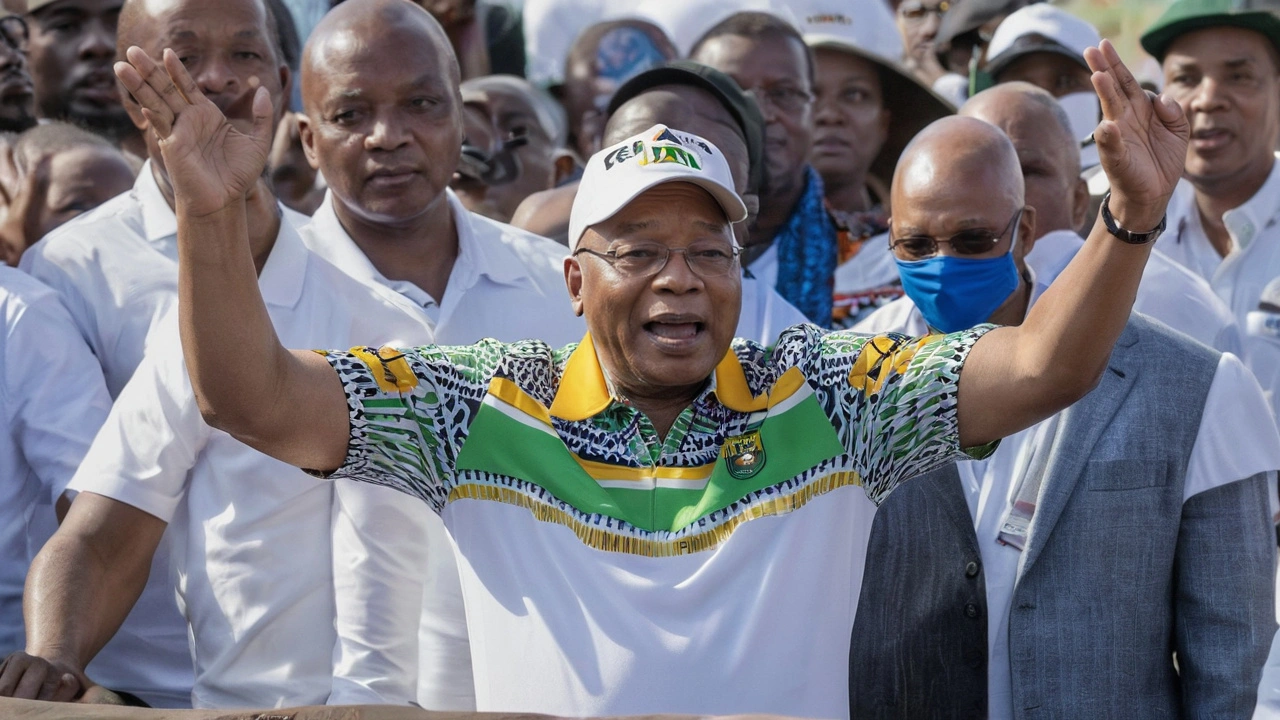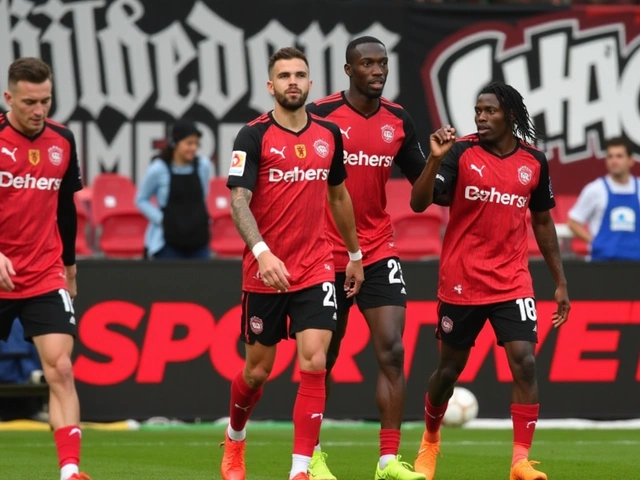Jacob Zuma Ousted from ANC Following Formation of Rival Political Party
In a dramatic turn of events, former South African President Jacob Zuma has been expelled from the African National Congress (ANC) after creating a new political party, uMkhonto we Sizwe (MK Party), which participated in the recent national elections. Zuma’s new party, named after the ANC’s armed wing during the apartheid struggle, captured nearly 15% of the national vote. This significant voter support has positioned the MK Party as the third-largest political group in South Africa, ultimately contributing to the ANC’s loss of its parliamentary majority for the first time since 1994.
The ANC’s disciplinary committee found Zuma guilty of ‘compromising the integrity’ of the ANC by leading a party that directly competed with his former party. The disciplinary proceedings revealed deep fissures within the ANC, an organization that has seen its dominance wane in recent years amid corruption scandals and internal conflicts. Zuma’s controversial tenure as president, punctuated by numerous corruption allegations, seems to echo through his latest endeavor with the MK Party, which currently holds 85 seats in the South African parliament.
The Rise of the MK Party
The uMkhonto we Sizwe (MK Party) quickly galvanized a significant portion of the South African electorate, capitalizing on widespread disenchantment with the ANC. Zuma’s longstanding charisma and appeal among a substantial segment of the population, particularly in rural areas and among older voters, played a crucial role in the party's stunning electoral performance. Many voters felt left behind by the ANC’s policies and leadership, which they perceived as increasingly out of touch with the realities of everyday South Africans.
With a campaign that focussed on economic empowerment and social justice, the MK Party resonated with segments of the population that felt neglected by the current regime. Zuma’s political messaging relied heavily on his historical legacy as an anti-apartheid fighter, and his promise to return the country to its revolutionary roots struck a chord with many voters. The MK Party’s success in the polls disrupted the long-standing political order, challenging the ANC’s hegemony and altering the landscape of South African politics.
ANC's Reaction and Disciplinary Actions
The ANC’s leadership was swift and decisive in its response to Zuma’s actions. The party suspended his membership in January, and a full disciplinary proceeding was held last week. The disciplinary committee’s decision to expel Zuma underscored the seriousness with which the ANC viewed his formation of a rival party. According to the committee, Zuma’s actions were incompatible with the ‘spirit of organizational discipline and the provisions of the ANC constitution.’ The committee released a detailed report citing Zuma’s contravention of party regulations and the explicitly competitive nature of MK Party’s platform.
In its official statement, the ANC condemned Zuma’s move to establish the MK Party, describing it as an affront to party unity and cohesion. The decision to expel Zuma, however, has not come without controversy. Zuma has publicly maintained that he is still a member of the ANC, arguing that the disciplinary committee's process was flawed and biased. The MK Party echoed these sentiments, condemning the ANC’s disciplinary committee as operating like a ‘kangaroo court.’ These developments indicate potential further fragmentation within the ANC, as well as significant political and ideological struggles going forward.
A New Political Landscape in South Africa
The emergence of the MK Party signifies a profound shift in South African politics. For decades, the ANC has been the dominant force, leading the fight against apartheid and shepherding the nation through its first free elections in 1994. Yet, the ANC’s loss of its parliamentary majority for the first time since the end of apartheid is a historic moment that marks an era of political plurality in South Africa.
As the ANC grapples with internal challenges and attempts to maintain its political dominance, the MK Party’s ascent highlights the electorate’s desire for change and accountability. The political landscape is now more competitive, with multiple parties vying for power and influence. This increased competition could potentially lead to more responsive and proactive governance, as parties seek to win over a skeptical and diverse electorate.
The MK Party’s promise to focus on economic empowerment, land reform, and anti-corruption measures has struck a chord with many South Africans. Zuma’s populist appeal and pledges to tackle these critical issues head-on have set the stage for heated political battles in the coming years. Whether the MK Party will be able to sustain its momentum or whether the ANC can regain its footing remains to be seen.
Future Implications and Challenges
Zuma’s expulsion and the rise of the MK Party pose numerous questions about the future trajectory of South African politics. Will the ANC be able to unify and address the challenges posed by its splinter groups and rivals? Can the MK Party transform its electoral success into sustained political influence and policy implementation?
The ANC’s response to these challenges will likely define its future. The party must find ways to address widespread dissatisfaction among voters while reasserting its historical role as the leader of South Africa’s liberation movement. Meanwhile, the MK Party will need to move beyond its initial electoral success and translate its promises into tangible outcomes for its supporters.
This evolving political landscape presents opportunities and risks for South Africa. On one hand, increased political competition could foster innovation and responsiveness among political parties. On the other, the fragmentation of the once-dominant ANC might lead to instability and further polarization.
As the political dynamics continue to shift, South Africans will watch closely to see how these changes play out in their daily lives and on the national stage. The nation stands at a crossroads, with the potential for significant transformation in its political and social fabric. Whether this transformation will lead to positive outcomes remains an open question, one that will be answered in the coming years by the actions of its leaders and the will of its people.















